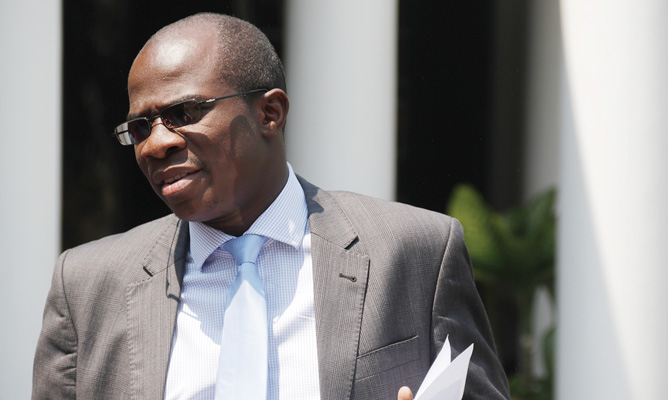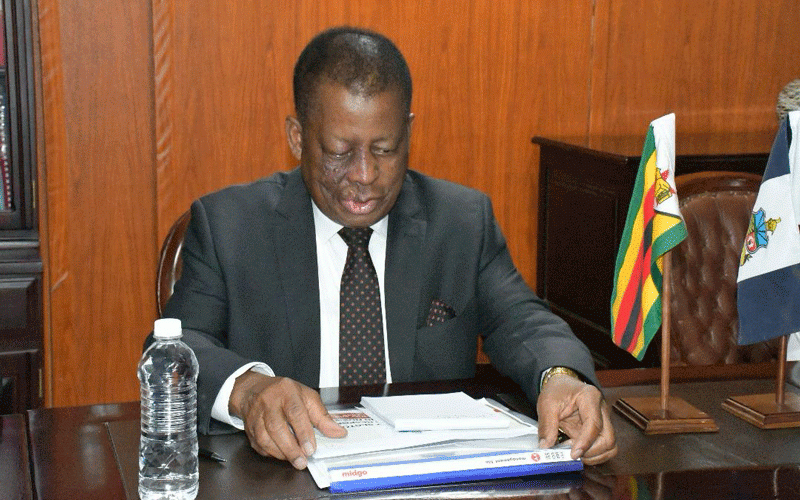
The arts sector welcomes the arrival of the new Sports, Recreation, Arts and Culture minister Makhosini Hlongwane (pictured), who recently announced that government was keen to revamp the creative sector into an industry that will contribute to the country’s economy.
His intention is to support the creative sector in its broader sense. According to him, “There is need to design strategies that are national in character, of developing the arts sector which does not situate only in funding, but also in facilitating funding and provision of an enabling environment for culture, sports and arts to thrive.” Hlongwane said government was duty-bound to develop an enabling environment for artists to thrive, but stressed that artists should not wait for government aid.
“We also want to encourage artists that once provided with this enabling environment, they must understand that they earn a living out of production of their work, not out of handouts from government,” he said.
Hlongwane also said there was need for collaborative efforts and enforcement of the current legal instruments in the fight against piracy.
“Privacy is a global phenomenon, a challenge that has affected the creative industry across the world. We need to put our hands together to innovate and to structure ways to make sure we mitigate the problem,” he said.
That, if achieved, will indeed be sweet music to the ears of many artists.
Although he is only a few weeks in the job, the minister must have really thought out what the discrepancies in the creative industry are before making the announcement. Perhaps he had all these things in mind when he was still a reporter at ZBC. How he is going to improve the creative industry, which in reality is the arts sector, is what we are all waiting to see with great expectation.
Hlongwane said there was need for collaborative efforts and enforcement of the current legal instruments in the fight against piracy.
- Chamisa under fire over US$120K donation
- Mavhunga puts DeMbare into Chibuku quarterfinals
- Pension funds bet on Cabora Bassa oilfields
- Councils defy govt fire tender directive
Keep Reading
In his words, “Piracy is a global phenomenon, a challenge that has affected the creative industry across the world. We need to put our hands together to innovate and to structure ways to make sure we mitigate the problem.”
With tools such as Kazaa, Morpheus, Limewire and other evolving technologies which assist those who want to steal music in place, eradicating piracy is almost near impossible. That definitely is going to be a tall order, but a good starting point will be to enforce the current legal instruments then improve on them. Perhaps the minister needs to look at the paltry fines that are paid by the offenders when arrested and to look at other ways of making it difficult for the pirates to operate.
With or without sufficient funding from treasury, Hlongwane has promised to leave no stone unturned in pursuit for arts excellence in the country.
We hope that he will be in a position to enforce this thinking before the next election in 2018.
In particular, he should look at engaging the major players in the creative industry in order to map the way forward. He should also look at ways of ensuring the safeguarding, respect and protection of the moral and professional interests of music industry practitioners through educational programmes.
In my opinion, he should also work towards the advancement of, and recognition of the importance of copyright and the value of intellectual property not only in economic terms but also as the protector of culture and of those who create it.
In addition, he should engage in solidarity action financed in various ways to enable certain members, or future members of the creative industry, to have access to modern music management techniques and skills under the most favourable conditions as well as watching over and contributing to the respecting of the economic and legal interests of music industry practitioners and their clients, both in the local and international arena.
Creating networking opportunities for music industry practitioners to exchange information and knowledge such that their professionalism and expertise of the community is enhanced is also essential.
We believe that culture and the arts are the basis and a powerful tool for economic regeneration, development and social cohesion. The presence of cultural activities is a major factor in the attractiveness of regions and cities. Investments in culture have a transversal effect which helps to stimulate the economic and social development as well as the innovative spirit at regional and local level as evidenced by the numbers who visit Zimbabwe for its artistic and cultural artefacts .
There is need for the minister to work with other ministries in order to enhance live music tourism which has great potential to boost the economy. A good example of how music tourism in the United Kingdom has bolstered the country’s economy is given by a British-based industry group, My Music, who have stated that; “Tourists visiting UK’s music festivals and concerts contributed to at least £ 864 million [$1,4 billion] last year to the economy, highlighting the need for a live music tourism strategy”.
According to the group, which is made up of songwriters, music managers and record companies, live music events across the country attract 7,7 million attendances by domestic and overseas tourists, who collectively spend £1,4 billion during their trips. Though just 5% of music tourists come from abroad, they contribute 18% of total spending.
The recent concerts in Zimbabwe by both local and foreign artists have attracted, though insignificantly, several visitors from neighbouring countries which include Zambia, Mozambique, South Africa and Namibia. If our artists become more professional and creative with a helping hand from the government, the number of music tourists will certainly be boosted and so will the economy.
Creative industries are, therefore, drivers of economic growth. There is therefore the need to encourage the adoption of a strategy to lure overseas music tourists. In this regard, I recommend the promotion of music strengths of various regions and the formation of a body to promote live music tourism within the country. Not only will this benefit the artistes but will also create thousands of full-time jobs such as hotel attendants, advertising agencies, equipment hire companies, venue owners, transport companies, and bill posters which all rely on the contribution from music. Above all, music enhances our lives.
Government, especially the National Arts Council of Zimbabwe and the Department of Immigration, should also work to address concerns over the visa system for overseas performers and exempt music promoters from certain unnecessarily frustrating licensing regulations. In this regard, I urge the minister to work with music managers, named artists, promoters and other stakeholders in the creative industry to hear their concerns, if his strategy to boost the economy is going to work. We wish him well. l Feedback: [email protected]











